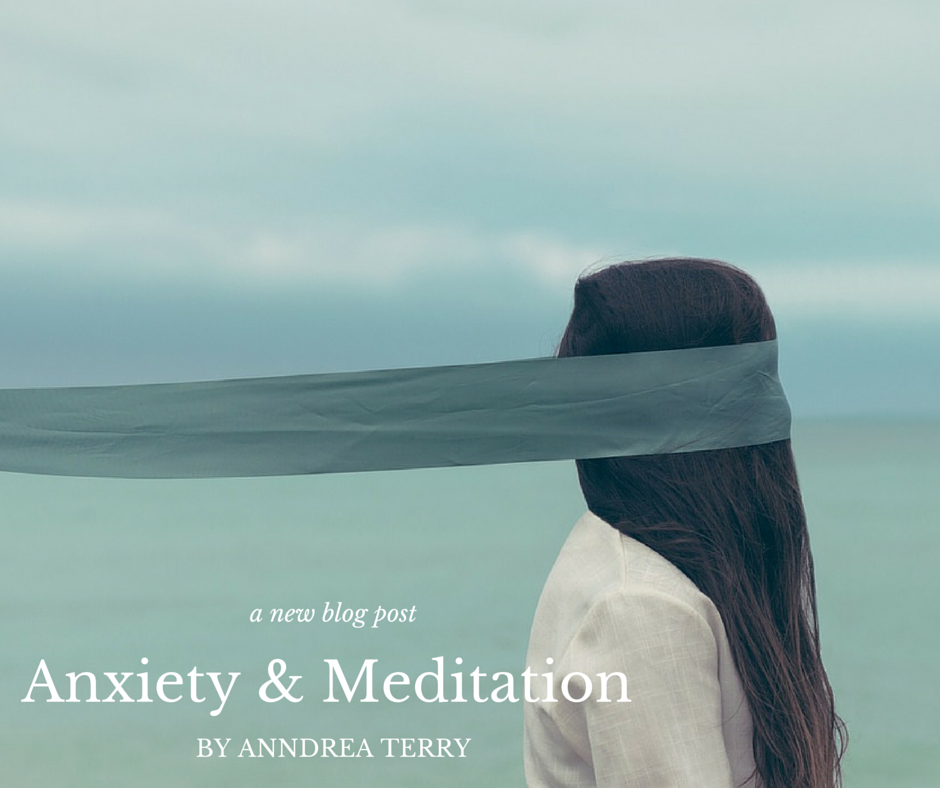By: Anndrea Terry, MA, LPC, NCC, RYT, CYLC
Once will change your day and more will change your life.
According to the Anxiety and Depression Association of American states that “anxiety disorders are the most common mental illness in the U.S., affecting 40 million adults in the United States and older, or 18% of the population.”
It is also not uncommon for individuals with anxiety to also suffer from depression, the reverse is also true. Since, anxiety and depression are so intimately linked, this actually can be a good thing. When one of the presenting issues is addressed, and symptom intensity can be reduced, managed and positively managed, the symptoms of co-occurring diagnosis more likely than not will lessen as well.
What does anxiety look like?
Anxiety can appear at the surface to be something that will never go away, and it won’t, but what if anxiety could be a positive in life. Anxiety is a reaction in our body for a reason, it communicates to us that something is not right. That attention is needed, much like when our stomach growls, our body communicating “Hey, it is time for dinner!”
If an individual is diagnosed with an anxiety disorder, most likely, anxiety has gotten the best of that person, causing a disruption in life that is no longer acceptable, and therefore has sought out treatment with a professional counselor. Even, if someone has anxiety and is not in treatment, they can also effectively manage anxiety and stress.
How to cope with anxiety
One of the most effective ways to reduce, manage and mindfully cope with stress and anxiety is through mindful breathing and meditation. Meditation has been around, well for a really long time. Spanning the test of time for its effectiveness, it may be one of the most beneficial practices a person can introduce into their daily or weekly life.
The basic Principles of Meditation are the following:
- Breath
- Focus
- Release
- Observation
- Repeat
Meditation uses the breath in such a way that it allows for the mind, and therefore the body to ground, to relax and activate the parasympathetic nervous system (aka the relaxation response), reducing the production of cortisol and other stress encouraging hormones. Focusing on a mantra, a word, a sound, your breath, your body, the list is endless, begins to draw your mental focus away from those anxious feelings and into our practice.
Once, you’ve dropped those or reduced those stressful feelings, letting go into that space still silence. If a thought or two or three pops up, simply observe it, and let it float by. And repeat for whatever duration of time you deem best for you. The mind and body are connected, arguably they are the one in the same. If the body is stressed, the mind follows. If the mind is stressed, the body follows. Meditation allows for anyone to relax the mind, relax the body, relax the body, relax the mind, therefore reducing symptoms of anxiety.
Quick Note: We also use technology to teach this at Mental Wellness Counseling. We have Muse, the brain-sensing headbands that we use in counseling.
The benefits of a meditation practice are many and backed by science.
- Reduced hypertension (blood pressure)
- Lowers risk of heart attack and stroke
- Decreases stress, anxiety and depression
- Decreases panic attacks
- Reduces sensitivity to pain
- Increases awareness and focus
- Increases creativity
- Improved quality of sleep
- Improved productivity
- Increased brain growth
- Improved mood
- Increases circulation of oxygen in the blood stream
- Increases lung capacity
The practice of meditation does not have to be scary, nor for the elite or the so-called enlightened. Meditation is for everyone; for the young ones, teens, students, moms & dads, grandmas & grandpas, the CEO’s and Yogis. It is especially for anyone desiring an improved quality of life or at the least to take the edge off.
After starting a meditation practice one might even start to notice bizarre and fascinating things occurring such as:
- You get more done
- You feel more rested, alert and maybe consuming less coffee
- The little things don’t get under your skin as much as they used to
- You start noticing magic in your daily life
- You feel more fulfilled by conversations and connections rather than material things
- You’re more connected with your mind and body
To schedule a session with Anndrea click here.
 Anndrea Terry, MA, LPC, NCC, RYT, CYLC is a counselor at the Traverse City counseling practice, Mental Wellness Counseling. She is also a Yoga & Meditation Teacher and Life Coach. Anndrea uses a liberating blend of holistic practices and methods when working with individuals to promote personal healing, growth and transformation from the inside out.
Anndrea Terry, MA, LPC, NCC, RYT, CYLC is a counselor at the Traverse City counseling practice, Mental Wellness Counseling. She is also a Yoga & Meditation Teacher and Life Coach. Anndrea uses a liberating blend of holistic practices and methods when working with individuals to promote personal healing, growth and transformation from the inside out.


